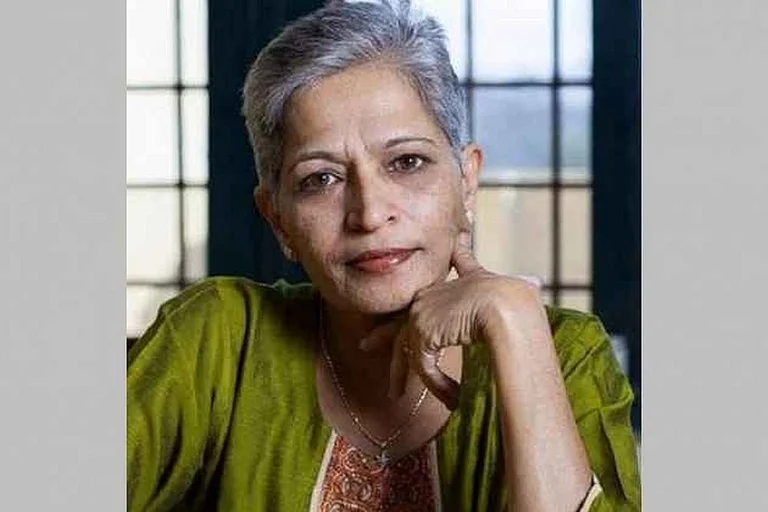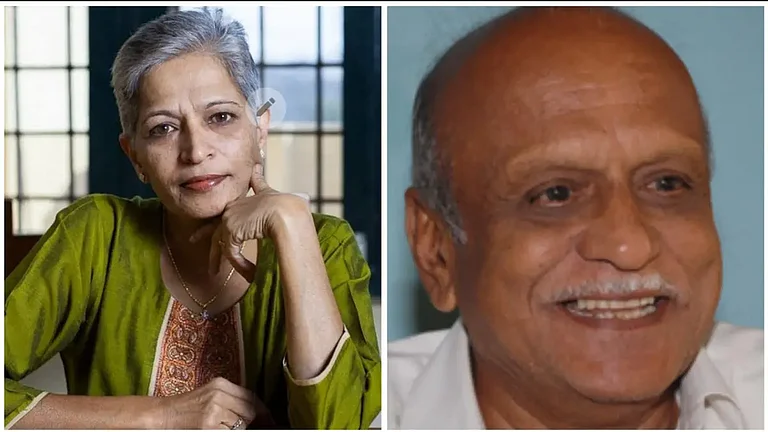M.M. Kalburgi was a Kannada scholar and rationalist who challenged tradition with reasoned inquiry.
He questioned superstition and blind ritual, facing opposition from conservative groups.
Assassinated in 2015, his legacy continues to inspire free thought and debate in India.
MM Kalburgi: A Scholar Silenced, A Legacy That Speaks On
On his tenth death anniversary, Outlook recalls the Kannada scholar and rationalist whose fearless questioning reshaped literature and public thought.
Kannada scholar and writer MM Kalburgi, one of India’s most influential rationalists, is widely recognised for his critical studies of Vachana literature, the 12th-century poetry of Basavanna and other Lingayat saints. But his influence is remembered far beyond literary analysis. He is regarded as one who embodied the principle that critical thinking and moral courage are inseparable.
On August 30, 2015, he was assassinated at his home in Dharwad, Karnataka, shocking the nation.
Kalburgi, through his works, such as the six-volume series Marga, over a hundred other books and hundreds of articles, had sought to understand historical texts in context, interpreting them not as unquestionable tradition but as reflections of the social, cultural, and ethical conditions of their time. His scholarship consistently emphasized reason, evidence, and critical thought as essential tools for understanding literature and society.
Rationalism being central to Kalburgi’s life and work, he questioned superstitions, ritualistic practices, and unquestioned authority, advocating for a thoughtful, ethical approach to religion. His critiques were often directed at the Lingayat community, where he encouraged reflection on social and moral principles rather than blind adherence to ritual.
Kalburgi believed that questioning assumptions was not a rejection of faith, but a necessary process for reform and progress. His approach combined academic rigour with a commitment to reason, making him both a respected scholar and a controversial figure.
In 1989, Kalburgi came under intense pressure from Lingayat temple chiefs and community leaders over his research in Marga 1, which looked closely at Lingayat history and culture. He was accused of making derogatory remarks about Basava, the 12th-century founder of the sect, and his family.
Reflecting on that painful compromise, Kalburgi later said, “I did it to save the lives of my family. But I also committed intellectual suicide on that day.” At the time, he had been forced to publicly retract some of his interpretations. Though he eventually returned to his work with renewed determination, the episode revealed the dangers independent scholars face when questioning established orthodoxy, and the heavy personal costs for those committed to reason and critical thought.
Born in 1938 in Yaragal, a small village in Karnataka, from an early age, Kalburgi showed an aptitude for language and literature. His academic excellence earned him a gold medal in Kannada from the Karnatak University, and he further went on to a distinguished career in scholarship and teaching. Later stationed as the Vice-Chancellor of Kannada University in Hampi, he guided research, mentored students, and encouraged independent thinking.
Throughout his career, he remained committed to intellectual honesty, and often challenged popular interpretations, urging scholars to approach texts critically.
However, his rationalist stance brought him into conflict with conservative and extremist groups, ultimately leading to his killing. His death shocked the nation, and highlighted the risks faced by independent thinkers in India, sparking debates about freedom of expression and the protection of dissenting voices.
Today, Kalburgi is remembered as a scholar whose work combined careful research with reasoned inquiry. His writings continue to inspire debate, study, and reflection, ensuring that his ideas remain influential.
Through his scholarship and his insistence on questioning assumptions, Kalburgi has left a legacy that continues to shape Kannada literature, rationalist thought, and public discourse in India. His life stands as a reminder that inquiry, evidence, and reason are essential to understanding both the past and the present.


